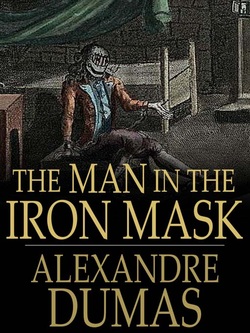
So I've had this book sat on the bookshelf for ages. Decided to break it out and actually read it. What I didn't realise is that it is the fifth and final book in the musketeers series. Oops.
So this book follows the continuing adventures of the musketeers that those who have read the previous 4 books will have grown to love. If however you haven't read the previous books you will be very confused, not know who anyone is, why they are doing what they are doing and why nobody likes it.
That aside, this book is about a plot to replace the king with his secret identical twin. That's the main plot but there are so many intricate plots going on that it's hard to get your head round them all. A huge array of very similarly named French people are basically trying to get one over on everyone else and have an arsenal of devious tricks and backstabbing methods to help them do it. Again I'm sure all these feuds make sense if you've seen them develop over time but for me it was all very confusing.
But you get the hang of it and the book is a clever political thriller in ways with all the various plots and plans overlapping to drive the story in interesting directions. But with all this going on the whole man in the iron mask thing falls into the background and actually a man is only in an iron mask for 2 pages or so. It wasn't what I was expecting and I hoped more would be made of this as it was deemed important enough to name the book after but then I suppose French courtiers hate each other isn't as catchy.
So I came into a saga way to late and was often confused but I still quite enjoyed the book and knowing how all the musketeers die (it's the last book and they are all old, that's not a spoiler) has kind of made me want to go back and read the previous books, in the right order, to get to know the men better as I really liked them even after only knowing them b
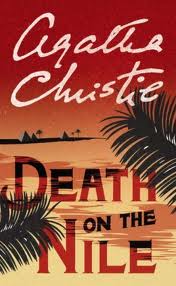
Decided to have a Poirot break. This time he was holidaying in Egypt where he meets Linnet Ridgeway, the richest woman in England enjoying her honeymoon with the man she stole from her best friend. He also meets a cast of interesting characters who obviously become the suspects when the pretty young Linnet turns up dead.
Again Christie got me. I can never guess who the murderer is. This time I was so sure and then right at the end she flipped everything and made me question everything while also explaining how everything made perfect sense. These books are so good at that but one day I will guess who did it.
One thing that was a bit disappointing was that Poirot wasn't traveling with a police companion as usual but one does turn up just before the murder on the flimsy pretense of searching for a crime lord murderer guy (it's never really that well explained). So there is this really underdeveloped subplot that doesn't really serve much purpose other than getting a sidekick into the story.
But as my only complaint is an unconvincing cameo I can't really complain.
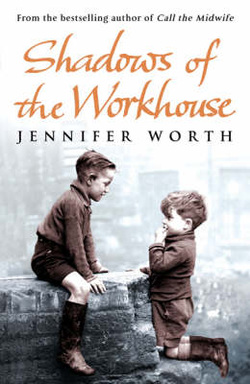
This is the follow up to the very successful and televised Call the Midwife. Like the first, this book is an account of the east end of London during the 1950s as seen by Jennifer Worth, a practicing midwife working with an order of nuns.
I enjoyed reading the first book as it gave a really domestic insight into the time period. Worth tells the lives of the everyday people living in poverty in the east end. She backs up her narratives with useful historical information but it never dominates the stories and the people are always at the forefront.
While the first book focused on the women that Worth helped have children this book follows the lives of those she came into contact in her general nursing capacities. The three main stories are that of Peggy and Frank, siblings who were raised in the workhouse and finally reunited after years apart; Joe a retired soldier who finds comfort in the daily visits from the nurse until he is moved to an old person's home in a renovated workhouse and Sister Monica Joan an eccentric elderly nun with a tendency towards kleptomania.
The stories are really well told and you really feel for the characters but one thing stood out for me as making this book not as good as the first. Because the focus in on fewer people and their stories are told in detail this book reads a lot more like fiction than memoir. I understand that Worth is allowed some level of artistic license but I felt she pushed it a bit at some points and embellished personal details and feelings in a way that made these people seem less real and more like fictional inventions. I felt like these people had already lived lives worth writing about and that these fictional embellishments almost cheapened their experiences and lessened the power of their stories.
That aside, I still really enjoyed the book and the focus on the workhouses was really interesting as I have only ever encountered them whilst studying so the focus was on the politics rather than the people.
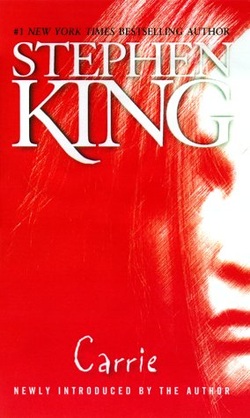
So after reading The Shining and loving it I decided to explore some more of King's work (I was going to type "carry on with" but the pun was unbearable). So the next story in my bumper book of King was Carrie.
Like with The Shining I had seen the film of Carrie before I read the book so I knew roughly what happened, and I say roughly because with these books I'm never sure exactly what's going on.
So I started reading and I recognised the iconic shower scene but there were some additions that you lose in the film. Obviously you get more insight into the characters because you can read what they are thinking but there was also an extra element to the narrative that I really enjoyed. While most of the story is told in the present, the narrative is interspersed with extracts from books and newspaper articles written after the event. These range from scientific explanations to first hand accounts to sensational news stories and it really adds to the tension. Now I knew roughly what was going to happen, and to give you a clue Carrie is a social outcast who discovers she has psychic powers, but I was still kept in suspense pretty much all the way through the book. And I wasn't disappointed because the climax of the book is 100x scarier and more violent than the film.
Knowing the end actually made some parts of the book harder to read, for example Sue and her boyfriend Tommy try to reach out and do a nice thing for Carrie but it doesn't end well. I felt bad for them in the film but in the book I actually was on the verge of tears because they are portrayed as such nice people and I knew what was going to happen to them. This is especially sad because one of the books used for extracts is a first hand account of prom night by Sue.
So this book is tense and scary and really compelling. I thought I knew what was going to happen but I was kept constantly on my toes and ended up reading the whole thing in one day. Stephen King does it again, I'm starting to get why he's such a big deal.
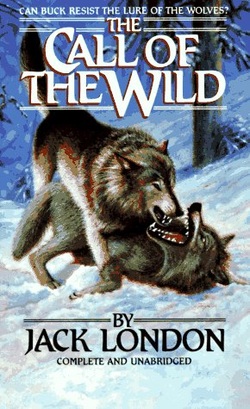
This little book is the story of Buck, a house dog that gets abducted and put to work as a sled dog in the harsh North.
It's a great story. I really like Jack London's books. They are really good adventure stories but he also makes you actually care about the dog/wolves.
It gets a bit philosophical at points but otherwise it's great if you want a fast paced break from writing your dissertation (or whatever else you might be doing).
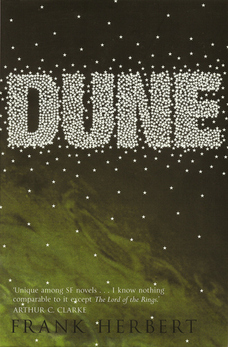
I am a fan of sci-fi so I thought I should read Dune as it is one of the classics of science fiction and has influenced so many that have come since.
And for good reason, it's good.
Dune tells the story of warring houses battling for supremacy in space. But these battles aren't all guns and violence. There a intricate political games being played and religion is used just as much as money to control the empire. The book focuses on the rivalry between the House Atreides and the House Harkonnen.
The main characters in the story are the Duke Leto Arteides, his concubine Jessica and their son Paul who move to the desert planet Arrakis. Here they have to combat the elements, their rival house the Harkonnen and the giant sand worms that destroy the equipment needed to collect the only thing of value on the planet, spice. But things go from bad to worse as a traitor in the house causes the downfall of the Atreides and Paul and Jessica are forced to make a life for themselves in the desert among the nomadic natives the Fremen. But they have a secret weapon in that they are both quite psychic because of their Bene Gesserit training and Paul becomes the messiah the Fremen were expecting.
It would take me too long to explain all the intricacies of this 500 page book here so just take my word for it that they are there and they are really well crafted. The story is really compelling and the way it is told from a mix of character's perspectives means that the reader gets a lot of insights into the story but because no one knows exactly what's going on nothing is given away.
For me, the best bit in this book is Jessica. She is a great character who is clever and kick ass at the same time and all her semi-psychic powers make her so much cooler. She isn't the main character really but I found myself rooting for her more than anyone else.
It's a really good book if you like golden age sci-fi (which I do). The story is complex and well crafted and the characters act like real people with distinct personalities.






 RSS Feed
RSS Feed